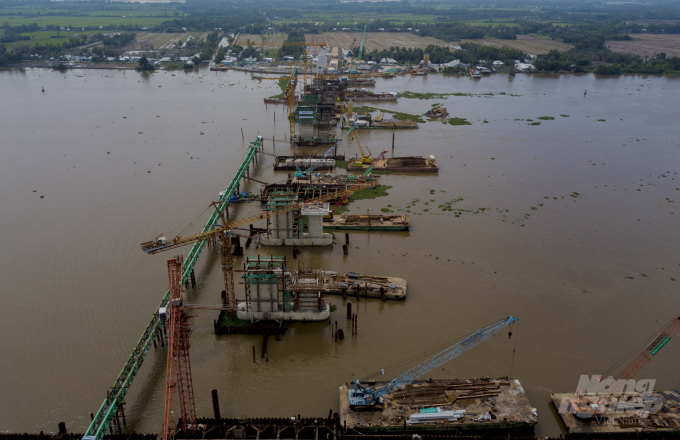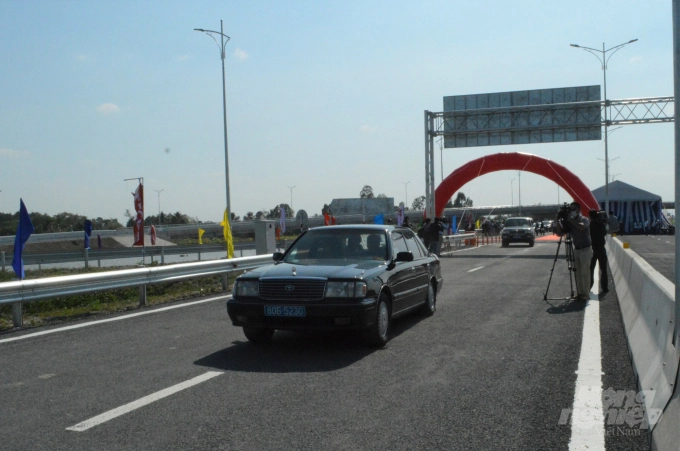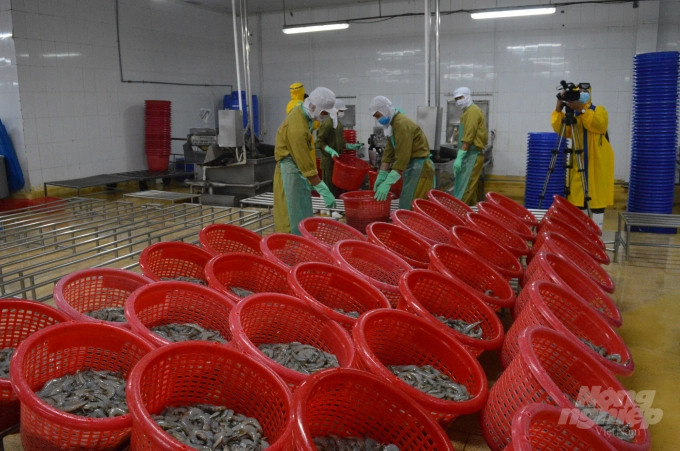November 27, 2025 | 17:44 GMT +7
November 27, 2025 | 17:44 GMT +7
Hotline: 0913.378.918
November 27, 2025 | 17:44 GMT +7
Hotline: 0913.378.918

The Cai Lon - Cai Be inter-regional irrigation project, with an investment of more than VND3.3 trillion (USD143 million), is being completed, helping the Mekong Delta to better adapt to climate change. Photo: Trung Chanh.
The planning draft, which is compiled by the Ministry of Planning and Investment, with vision towards 2050, has been widely consulted, thereby mobilising and efficiently using resources for sustainable development.
Deputy Minister Tran Quoc Phuong said the draft identified that saltwater and brackish water as natural resources for development instead of taking interventions to change them and cause negative impacts on the environment and ecosystem.
The draft also considered climate change to be not only challenges but also opportunities to change production models and re-organise the delta’s development planning towards efficiency and sustainability, he said.
The third highlight of the draft was to change the mindset of food security and shift the development strategy to seafood, fruit and rice to suit with the market’s demand, he said.

Lo Te - Rach Soi Expressway has been put into operation, connecting trade and shortening the travelling time from the Mekong Delta provinces to HCM City. Photo: Trung Chanh.
Planning for sustainable development
Since 2016, the Government also issued Resolution No 120/NQ-CP with many short-term and long-term overall tasks and solutions, marking a major breakthrough in shaping a sustainable development strategy for the delta following the model of integrating socio-economic development of the whole region with a long-term vision.
After the initial successes of the resolution on sustainable development of the Mekong Delta, the year 2020 continued to make outstanding achievements in climate change adaptation in Viet Nam – it was the completion of the Nationally determined contribution (NDC) as well as issued the National Adaptation Plan (NAP) for the period 2021-30, with a vision towards 2050.
The adaptation contribution in the updated NDC focuses on the implementation of strategic tasks, including strengthening State management and resources; enhancing resilience and improving adaptive capacity for communities, economic sectors and ecosystems; reducing natural disasters’ risk and damage; and being ready to respond to natural disasters and extreme climate.
The Vietnamese Government's determination has received attention and support from many international partners.
In the meantime, Viet Nam's NAP focuses on implementing specific tasks in seven different groups, which are assessed as being severely affected by climate change.
Some tasks have concentrated on climate change adaptation in the delta - the region has suffered the most from climate change in Viet Nam.
Specifically, the region's economy had suffered heavy damage from climate change, only two provinces of Bac Lieu and Ca Mau recorded positive growth due to the production system that was accustomed to the intrusion of salinity during the historic salinity and drought in 2015-16.
However, the salinity and drought in 2019 - 20 has a longer time and deeper penetration, up to 7 of 12 provinces in the delta still recorded positive growth from 1-3 per cent.
Investing infrastructure, allocating resources properly
To successfully implement the resolution No 120, it is necessary to delineate the boundary between fresh groundwater and saline groundwater to serve as a basis for building a suitable farming system for each area of the delta.
It also needs to invest in building multi-purpose works, both storing fresh water and regulating flood if needed.
Besides, the localities of the delta should also consider local people's livelihoods and then carefully calculate and build appropriate infrastructure for livelihood development instead of building infrastructure unorganisedly.
According to Phuong, if approved, the planning draft would be the foundation to allocate and mobilise investment in a united and highly-effective way.
It would contribute to the implementation of sustainable-development targets of the resolution No 120 and the Government’s efforts in global climate change adaptation, he added.
Expressing the support of the Kingdom of the Netherlands, Ambassador Elsbeth Akkerman said Viet Nam and the Netherlands were two countries severely affected by climate change.
Therefore, the two governments should continue to co-ordinate and propose appropriate solutions to climate change, especially in the Mekong River Delta, towards the goal of sustainable development and adaptation to climate change in Viet Nam.
Elsbeth said that Viet Nam, with limited financial resources, had to build a specific financial mechanism to effectively implement the plan.

The provinces and cities of the Mekong Delta have shifted to develop seafood, fruit and rice to suit with the market, promoting their advantages for sustainable development. Photo: Trung Chanh.
The Government, with the leading role, should contribute a part of the fund and call upon for more from sustainable-development aid globally, she said.
Besides, there were private investment funds and the model of public-private partnerships. The partners were very interested in projects that were both sustainable and commercially feasible as well as could be expanded, she said.
Translated by Bich Huong

(VAN) After the institutional merger, Da Nang possesses significant forest-carbon reserves and is proactively engaging in the carbon market, creating a new revenue stream.

(VAN) An Giang strengthens communication against IUU fishing, increases inspections and sanctions, and is determined to remove the EC’s “yellow card” while developing a sustainable fisheries sector.

(VAN) As green transition becomes a global trajectory, Viet Nam’s biggest challenge is not only technology and models, but how to ensure that capital flows reach the right beneficiaries.

(VAN) The Ministry of Agriculture and Environment must spearhead the construction of green governance, spanning decision-making processes and investment standards to policy evaluation mechanisms.

(VAN) The Agriculture and Environment sector of Khanh Hoa has achieved numerous milestones over the past 80 years, contributing significantly to the goal of establishing the province as a centrally governed city by 2030.

(VAN) Viet Nam is entering the pivotal period of 2025-2030, moving toward the formulation of the Remote Sensing Law, which will establish a legal foundation for the development of national digital data.

(VAN) The agricultural sector is finalizing the strategic framework for emission reduction, setting the goal of sharply cutting methane and 403.7 million tons of CO2 equivalent and moving toward Net Zero by 2050.